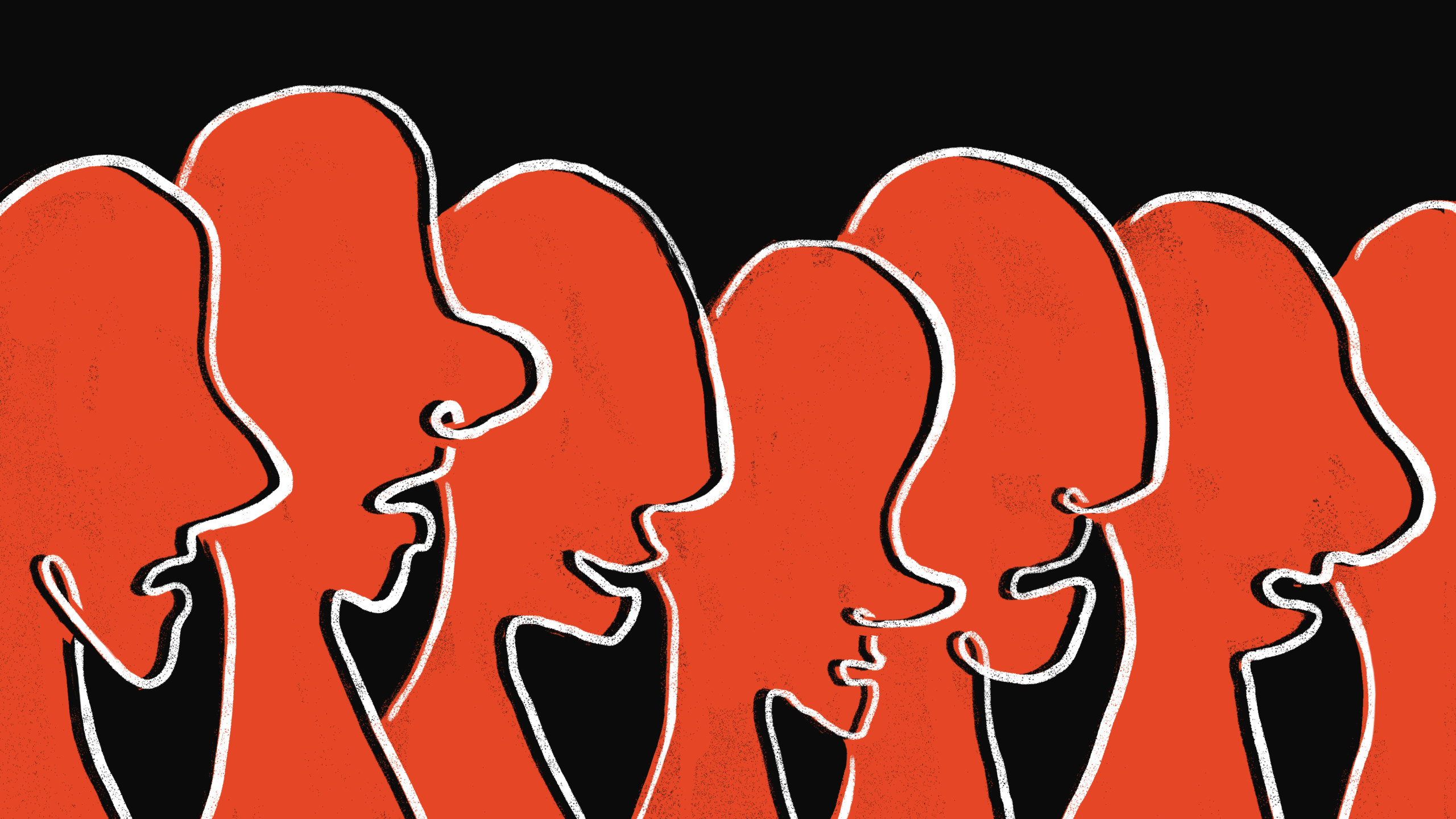Sydney Business Insights and Rae Cooper

Women and the future of work
At the same time that revelations of sexual harassment of women at work and the rise of the “me too” movement were making headlines, a team of researchers from The University of Sydney were investigating the working lives of women.
In this podcast, we talk with Professor Rae Cooper about The University of Sydney’s landmark study into what women want at work.
For more than 20 years Professor Cooper has been studying work places and the changing nature of the labour force. She is currently the Co-Director of the Women, Work and Leadership Research Group.
Show notes and links
Women, Work & Leadership Research Group
Women and the Future of Work: Report 1 of the Australian Women’s Working Futures Project (PDF)
You can subscribe to this podcast on iTunes, Spotify, Soundcloud, Stitcher, Libsyn, YouTube or wherever you get your podcasts. You can follow us online on Flipboard, Twitter, or on sbi.sydney.edu.au.
Sydney Business Insights is a University of Sydney Business School initiative aiming to provide the business community and public, including our students, alumni and partners with a deeper understanding of major issues and trends around the future of business.
Professor Rae Cooper, AO is Professor of Gender, Work and Employment Relations. Rae is founding Director of the Australian Centre for Gender Equality and Inclusion at Work.
Share
We believe in open and honest access to knowledge. We use a Creative Commons Attribution NoDerivatives licence for our articles and podcasts, so you can republish them for free, online or in print.
Transcript
Intro (SBI music): Welcome to Sydney Business Insights. This episode we’re all about The Future of Women at Work. We’re talking with Professor Rae Cooper about the University of Sydney’s landmark study into what women want at work.
Rae Cooper: Let’s stop trying to fix women and the way they approach work and lets start thinking about fixing organizations fixing government policy fixing the way institutions relate with women.
Sandra Peter: There will be…
Rae: OK some crazy talk…
Sandra: About how to close the gender pay gap.
Rae: We need to start to think about setting some targets about the gender pay gap.
Sandra: And Rae calls time on business as usual.
Rae: Don’t get me cross.
Sandra: That and more…
SBI Intro: From The University of Sydney Business School, this is Sydney Business Insights. The podcast that explores the future of business.
Sandra: Over the last year the story of women at work has been the shocking revelations of sexual harassment and the rise of the “me too” movement that has swept the world.
News reports from the US and Australia of sexual harassment: https://www.youtube.com/watch?v=8mL1-k1U0aY
“Thousands of women are using the hash tag me too to identify themselves as survivors of sexual harassment and assault today.”
http://radio.abc.net.au/programitem/pePDK4oO03?play=true
‘Everywhere you look right now there is an examination of safety for women in the workplace..// but still millions of women are living outside the worlds of show biz and politics…”
https://www.youtube.com/watch?v=OwKVJS9UNjw
“..an estimated 14 million have experienced sexual abuse in work related incidents…..”
Sandra: At the same time that women’s sexual harassment experiences were making headlines, a team of researchers from the University of Sydney were investigating the working lives of women. They were asking women between the ages of 16 and 40 about their expectations and experiences on the job because, well, no one had ever done that before. Anywhere in the world. More than 2,000 women were surveyed online and 40 women participated in five focus group discussions.
And the stories that emerged are surprising – yes sexual harassment is a significant workplace threat – but also there are lots of other ways in which women experience work differently to men. The investigators also sought the views of 500 men in the same age group because…
Rae: Women and men look different in the labor market.
Sandra: That’s Rae Cooper. Professor Cooper is co-author of this landmark study from the Women, Work and Leadership Research Group at the University of Sydney Business School.
For more than 20 years Professor Cooper has been studying work places and the changing nature of the labour force. She is currently the Co-Director of the Women, Work and Leadership Research Group.
Rae and her team felt something was missing in the current debate about the future of work and that is…
Rae: There’s real absence of women's voices in this debate. There are more robots being accounted for in the future of work debate at the moment than there are women or gender and gender differences.
Sandra: We’ll get to the robots later. Because her report is a first, I started by asking Rae what surprised her most about what women want in a job.
Rae: The two things that came out really strongly with over 90% of all women responding saying, number one was being treated with respect at work. And we think that's kind of interesting. We sort of thought that we'd have things around wages and hours and that sort of thing coming out as the key finding but respect, which is a sort of amorphous concept.
And the second one, and I think probably connected up with that, is wanting to have secure employment.
Sandra: Rae’s team found men also want respect but not as much as women do.
Rae: Nine out of 10 women will say that they want respect, and it's more like six in 10 MEN say that they want respect at work, and so in some ways it's about valuing similar things but at a different scale.
Sandra: For Rae this ‘respect gap’ offers a view into the fundamentally different way women and men experience life.
Rae: I think it goes to power. I think it goes to relationships. I think it goes also to gender. We did the survey in the field when the ‘me too’ campaign was well and truly on foot and I think that women have responded to that very strongly and they respond to it in a way that goes to issues like respect and rights. I think they're talking about gendered power relationships as much as they are the material conditions of work.
Sandra: Another big difference between men and women is their sense of how fair work places are. In the area of equality there was a marked difference in female and male perceptions about the treatment in the workplace. So, only 31% of women thought that the sexes were treated equally whereas 50% of the men thought they were. Why this gap?
Rae: So this is fascinating. Often people if they haven't experienced inequality, or they can't quite see their own privilege they are less likely to identify that there are inequalities.
But it is a pretty marked difference you know where most men think things are pretty hunky dory and most women think that you know inequalities absolutely alive and well and I think that goes to the differences in their experiences in work.
Sandra: Of course, when you were designing this survey you couldn't have known that the issue of sexual harassment was going to become such a huge and ongoing topic with lots of stories from working women appearing almost on a daily basis across all media. Your report adds some useful data to that discussion and according to your study about 10% of women have experienced sexual harassment at work.
Rae: Well in fact our survey shows that 10% of women are experiencing sexual harassment at the moment so it wasn't a question about looking back, it's a question about me and my job right now so of our sample of 2100 women that means there’s 210, who was saying ‘yes at the moment in my job. I'm presently being sexually harassed’. So for us, that was I guess surprising because it's very high. That's a lot of women who are prepared to put the hand up and say that this is their experience right now. So we also talked in our focus groups with women about the nature of this sexual harassment and whilst you don't like to talk in terms of scale of severity, because I think these things really do impact very much on well-being and health and you know also work performance and people's willingness to actually want to go to work.
The range of behaviours goes everything from sexualized comments sexualized jokes, all the way through to physical touching and, threatening behaviour or even assault in some cases, so women in our focus groups all talk to us about either having experienced it themselves or having observed those kinds of behaviours going on in their workplace interesting kind of differences in different occupations and sectors, obviously, there's a lot of fear around dealing with sexual harassment and speaking up about it and there's a lot of shame associated with it and a lot of people internalize what's happened to them and sometimes workplaces are not great at dealing with sexual harassment when it's brought to their attention and sometimes the person who raises the issue is the person who cops the most flak in the workplace, rather than the person or the people who might be the problem.
Sandra: For more than 30 years the gender pay gap – that’s the difference between what women and men earn – has persisted at a rate of between 16 - 21 per cent. Rae can take us through the myriad of reasons for the stickiness of this gap.
Rae: It's about the types of jobs that men and women work in so it's about occupational segregation, but it's also about organisational hierarchical segregation. So, you know, the classic pyramid situation where the higher up the organisation, the less women there are.
But it also goes to a range about the issues around pay disclosure and what our pay systems look like it's about who we reward with bonuses for example, it's about the types of behaviours that we reward so there are a range of different things going on in terms of what goes on in organisations, but there's a range of things outside of organisations that also contribute and that goes to what girls study at school and at university with the sectors and industries that have been seen as an appropriate area for women to work in and the sorts of sectors women can thrive in their careers and it also goes to some of the issues around the norms around work and around care.
Sandra: One thing Rae is convinced of – the wages gap won’t go away unless it stops being a women’s issue and starts being an economic issue for everyone.
Rae: It's a problem for us as educational institutions where we have these very, very bright, very ambitious young woman who are investing in themselves and who we're investing in to build their skills and capabilities, who then go out into the workforce and don't get that return on their investment and we don't get the return on our investment, the government whose funding higher education doesn't get the return on the investment and businesses are not getting the pipe line of talented women in and keeping them because they're not being rewarded properly. So I think, you know, framing this as only a women's issue might be one of the problems and starting to frame it out a bit more as a women's issue. Yes. And it's a rights and a justice issue, but it's also an economic issue and it's about business performance and it's about, economic performance of countries as well.
Sandra: At current rates of change the wages gap will be around for our grandchildren to inherit. Unless we are prepared to put up with that trajectory - it’s time for some…
Rae: …crazy talk. We need to start to think about setting some targets about the gender pay gap when are we going to narrow it, how are we going to narrow it, by what point in time will it be at zero? And trying to you know concentrate the mind around some of those things might be one idea that we can start to stop talking about this is a problem. Stop talking about the impact that it's having and actually start really concentrating on what some solutions are and do it in a way that we recognize that it's a difficult problem to explain. There are so many people and institutions who are part of its design, which means that there are so many people and institutions who should be part of trying to realign and to fix the problem, ultimately trying to sell that as you know what is that what's the upside for all of those people. I think is going to be critical part of trying to solve it.
Sandra: Despite the problems of injustice, sexism and wage inequities – the study found that women don’t want to be Men at Work.
Women want to plot their own path, take time out to have a family, care for other family members. That does not make them less ambitious than men but they will need things to change to be able to realise their goals.
Rae: What's going on here is we're not meeting the needs of young women. We are not allowing them to think through how they going to do motherhood and how they're going to do a great career at the same time, we're not thinking about how we’re going to prepare them for the future of work. Let's stop trying to fix women and the way that they approach work and let's start thinking about fixing organisations, fixing government policy, fixing the way institutions relate with women. And I think that might actually bear some more fruit for us.
Sandra: OK – time for the robots. Actually the anxiety about automation taking over jobs is much more of a concern for men.
Rae: Women are very conscious that jobs are going to change and that skills need to be developed and that training needs to be entered into. They don't necessarily think that the robots are coming for their jobs and they are different from men in that respect. Men are much more conscious of the impact of automation on their jobs.
Sandra: We are talking about ‘male’ jobs and female ‘jobs’ because in the Australian labour market, jobs are highly gendered:
More than 60% of women and men work in an occupation or industry where the majority of jobs are held by one or the other gender.
And predictions about jobs growth in the future…
Rae: Is all in feminised jobs. It's in health, human services, and education primarily and that's about our service reorientation around the economy, but it's also about our aging population and the need to invest in caring for people as they become older and more in-firm. So we need to actually listen to women and say what are you doing now? What are you hoping to achieve? What are you frightened of and how can we prepare you for that future of work?
Sandra: The report arrived right in the moment when workplaces are under scrutiny for the way they have not been listening to women’s voices and women’s perspectives. Sometimes timing is everything…
Rae: Okay, so we have had a really interesting response from business to our report and a lot of engagement. At some level, it has been a sort of ‘aha’ moment with people saying gosh we hadn't thought about you know the designing out of a gender conversation in this debate. So I think that's great. We start a conversation and I've started a conversation with lots of business leaders in the last few weeks as our report has been launched and lots of people saying can you come and talk to our senior executive group or can you come and talk to our industry association about what we need to think about to equip ourselves for the future of work and to make sure that women are included in this conversation and in our design of jobs. So I think this is something that businesses are going to have to grapple with and they can't put their heads in the sand and hopefully the people who've been engaging with us already hopefully that will lead to a bigger conversation about where this is all going for women.
Sandra: And because this report is dedicated to the future of women at work we are going to end with the aspirations of some young women and their male counterparts, who are right at the start of their journey into the world of work.
We caught up with these first year business students as they were about to board the bus for their induction camp.
Vox pops
Hansika: I’m studying commerce and law and majoring in finance.
Jason: I hope my career to take me to places where I can really strive and help others do my best and work in teams.
Audrey: I would love to have my own start-up and sell it to Google.
Cheran: Yeah definitely family will be very important for me but you see an increasing percentage of managers and bosses who are having families and things like that. I will take time off to do that but I am a very work orientated person, I could never see myself retire.
Clare: I would like to have a family so obviously that balance is different to a male.
Audrey: I would like the government to be very encouraging of women of having some kind of services in place for us so we don’t have to exit the work force for a super long time and even if we do need to that they are supporting us financially.
Hansika: I think everyone deserves equal respect I just think that sometimes it’s a little bit more accessible for some people.
Cheran: On the whole I think men and women are treated fairly equal, that’s not to say discrimination does not still exist, the system is not perfect I’m not saying that and many improvements can be made to give women the same sort of rights that men have.
Elisa: The thing is there is a reason why females want it more, we often want what we don’t have right? There is a reason why so many women say respect is so important. Why? Because it’s lacking that’s the simple reason.
Jason: I think we are not quite there yet but hope we are getting to a place of equality.
Elisa: In order to grow professionally and personally, being able to push yourself all the time and push those boundaries. And always be on that learning curve. I’ve been involved in the entrepreneurship space and I’ve recently started my own business and the thing is you really don’t learn until you do something - when you have that right mindset there is nothing that you can’t achieve.
Outro: You've been listening to Sydney Business Insights. The University of Sydney Business School podcast about the future of business. You can subscribe to our podcast on iTunes, Stitcher, Libsyn, Spotify, SoundCloud or wherever you get your podcasts. And you can visit us at sbi.sydney.edu.au and hear our entire podcast archive, read articles and watch video content that explore the future of business.
*End of transcript*
Close transcript







